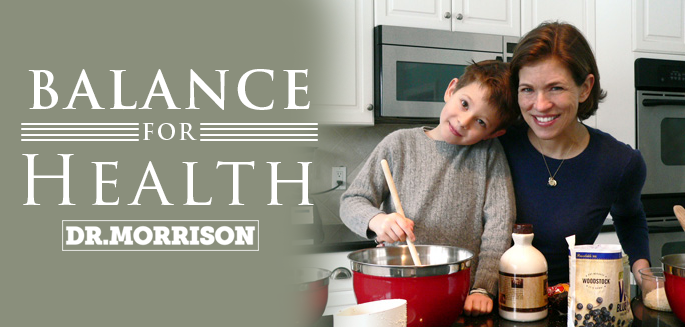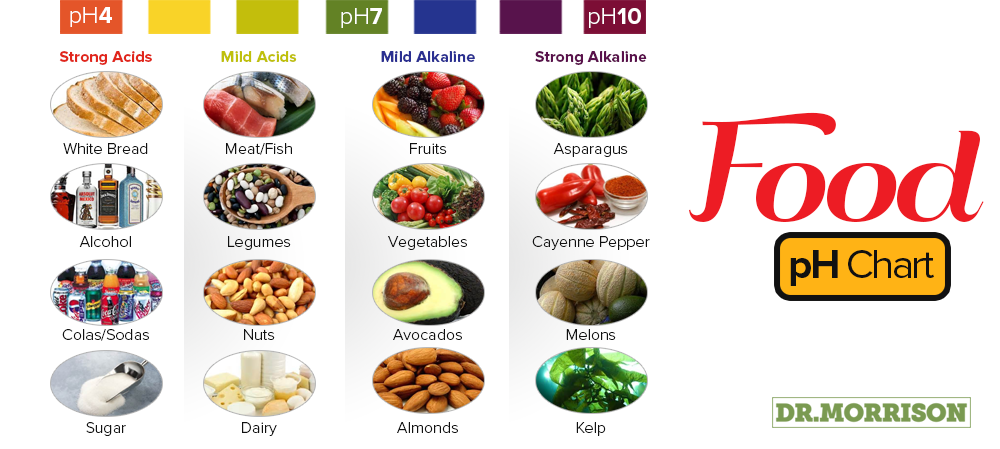By Tapp Francke Ingolia

Does changing your body’s pH levels through diet have any benefits?
pH (short for potential of hydrogen) balance, is a critical factor in overall health including maintaining a healthy digestive system, glowing skin and a strong immune system. Like most things in life, it’s all about balance – in this case, between the level of acidity and alkalinity in your body. If your pH balance is too far in one direction or the other, it can be detrimental to your health.
I enlisted the help of Dr. Jeffrey Morrison to explain the specifics around pH balance, as well as easy dietary choices that help to correct imbalances.
A leader in holistic medicine, Dr. Morrison is a medical doctor as well as a nutrition expert. He heads up the Morrison Center in New York City and is the author of the book “Cleanse Your Body, Clear Your Mind.”
Q: What is the importance of the acid/alkaline balance in the body?
Dr. Morrison: Our bodies work the best when we are able to maintain the proper pH. When the body is too acid or too alkaline, it doesn’t work optimally.
Q: What causes an imbalance?
Dr. Morrison: Our bodies are very efficient at keeping the acid/alkaline balance, but if we carry too much stress and our acid levels get too high, then the body needs to work extra hard to maintain that balance, leaving little energy for healing and repair.

When the body is too acidic, the cells become deprived of the oxygen they need to efficiently deliver nutrients and energy throughout the body. To buffer the acid in our blood and maintain a proper PH, the body also needs to steal calcium from our bones and magnesium from our cells. That is why people who are acidic over an extended period of time tend toward osteoporosis, low energy, and shorter life spans.
Q: If too much acid can hurt us, why do we need it?
Dr. Morrison: We need the acid to help fight infection. We tend to become acidic when we are fighting an acute infection like a cold or the flu or healing a wound. The body’s response to infection is inflammation. Temperature and circulation increase while oxygenation decreases; it’s like localized chemotherapy. As a consequence, acid levels increase.
When the body is too acidic, the cells become deprived of the oxygen they need to efficiently deliver nutrients and energy throughout the body. To buffer the acid in our blood and maintain a proper PH, the body also needs to steal calcium from our bones and magnesium from our cells. That is why people who are acidic over an extended period of time tend toward osteoporosis, low energy, and shorter life spans.
If too much acid can hurt us, why do we need it?
Dr. Morrison: We need the acid to help fight infection. We tend to become acidic when we are fighting an acute infection like a cold or the flu or healing a wound. The body’s response to infection is inflammation. Temperature and circulation increase while oxygenation decreases; it’s like localized chemotherapy. As a consequence, acid levels increase.
Shortcut

This is why people tend to get really tired when they are sick. Cells need oxygen to make energy and the acidic environment inhibits the cells from getting that oxygen. This is a healthy response. We want this to happen. This is how our bodies heal. However, when this acute reaction becomes a chronic one, then we get into trouble.
Q: What steps can people make to create more alkalinity in their body?
Dr. Morrison: Eating the wrong food plays a big role in how acidic we are. People who eat processed food, drink soda, and eat candy tend to be more acidic. Other things that play a role in our pH levels are chronic infections, long-term use of prescription medications, too much protein, and stress.
Q: What foods are best to eat to promote optimum pH?
Dr. Morrison: The best foods to boost your alkalinity are leafy green vegetables like spinach, kale, celery, and swiss chard, as well as some fruits. To shoot for an optimum pH, people should eat a diet that is 70% alkaline and 30% acidic. Acidic foods like nuts, grains and proteins are an essential part of your diet but should make up only 30% of your food intake.
Q: What about non-dietary factors?
Dr. Morrison: The other things that people can do to reduce the acidity in their bodies are moderate exercise, stress management and to drink plenty of water.”
Q: How can people find out if they are acidic?
Dr. Morrison: There is a very simple test that anyone can pick up in a health food store: pH Balance strips. You can choose either urine or saliva, but I feel that urine is more accurate. Use the strips with your first morning urine. If you test below a 5, then it is likely that you are acidic.
Q. What will people feel when they switch over from being too acidic to becoming balanced?
Dr. Morrison: When your body’s PH normalizes, you will feel more energized and less achy. You will sleep better, your mind will be clearer, your skin color will improve and your ability to fight off infections will increase. This is because your cells will have proper oxygenation which will allow your body to function at its highest level.
Tapp is a health and wellness blogger and a registered nutrition counselor in Southampton. For more recipes and healthy tips, please visit www.TappsTips.com.